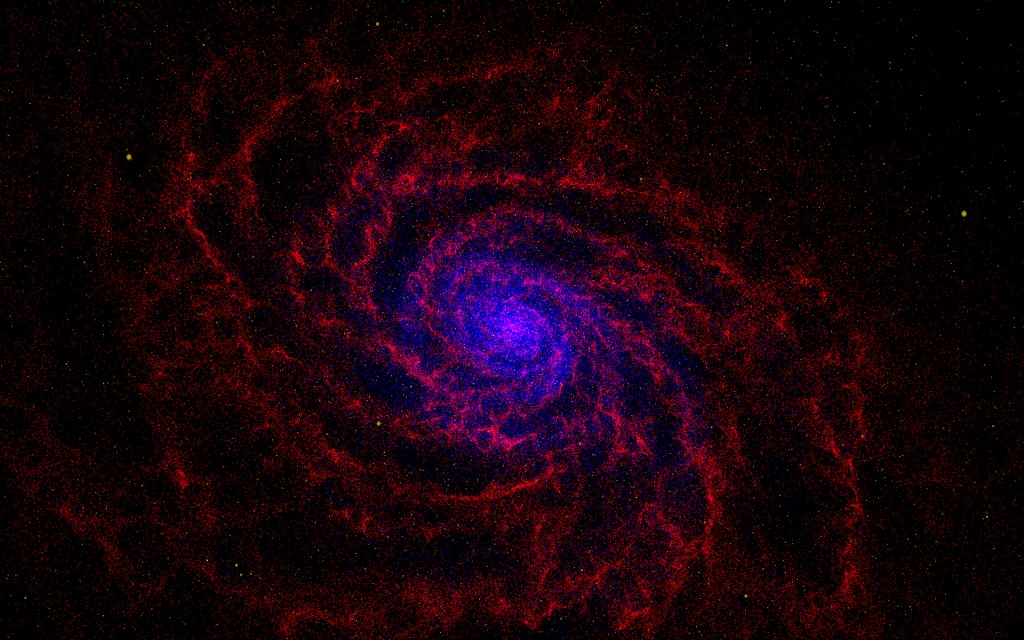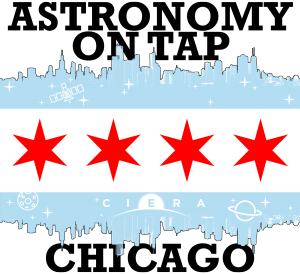Astronomy LIVE
During the height of the Covid-19 pandemic all in-person outreach was suspended. In response, Chase Kimball and I designed a new, virtual, outreach series we titled Astronomy LIVE (Live. Interactive. Virtual. Educational.). Evoking the vibe of an open mic night with a flexible format and lots of guest appearances, Astronomy LIVE streamed live on Youtube once a month with tons of trivia and fun. The recordings of our livestreams are available at the CIERA youtube page. As part of the core Astronomy LIVE team, I appeared on every episode either as a featured speaker (talking about ~alien life in the solar system~), an interviewer, a gameshow host and contestant, and a boring old master of ceremonies.
Pathfinder Brochures
Doing as much outreach standing behind folding card tables surrounded by astronomy swag as I do, I found myself answering many of the same questions over and over again. “What should my child do to become an astronomer?” “What’s at the center of a black hole?” “Do aliens exist?” And while I couldn’t answer all of them what I did know was that most people were not interested in the pamphlets I was provided with by my department instructing them on how to become a donor. From this problem the Pathfinders were born. Having grown from the original template focused on my own research, the Pathfinder Editorial Board, which I chair, solicits, guides, and refines educational brochures on basic concepts in astronomy that are continuously added to a growing library. In addition to these science-focused brochures, we periodically compile career trajectories from members of the department to give parents of children of all ages the best advice we can to get their kids excited about astronomy and STEM.
Adler Planetarium
The Adler Planetarium hosts Astronomy Conversations where professional astronomers staff the Space Visualization Lab (SVL) to demonstrate their research and explain concepts in astronomy to a general audience. The SVL is unique in offering a space with a networked set of 3D enabled monitors and projectors that are all controlled wirelessly– allowing the presenter to draw from a bank of tailored visualizations that can be seamlessly cast to any number of specific displays. I staff the SVL monthly as part of a rotating schedule of graduate students, post-docs, and faculty.

Firefly
I am working to adapt versions of the browser-based simulation visualization tool Firefly I co-develop along with Aaron Geller. Firefly is designed to display any three-dimensional dataset. Data is formatted through a simple and easy to use Python interface that allows for powerful control of both the underlying dataset and how it is displayed.
Firefly’s flexible design allows it to be used with VR headsets and an iPad controller creating the potential for exciting and impactful museum exhibits. In the past, members of the galaxy formation group have brought Firefly to the SVL in order to showcase our research and get feedback on features for the app. You can try an online version with a sample dataset here. If you have any feedback, discover any bugs, or just want to say how much you enjoy playing with it shoot me an email and let me know!

Astronomy on Tap
Astronomy on Tap is an international public outreach effort that combines a love of science and trivia with a love of beer. Before the pandemic, the Northwestern based group hosts a quarterly event at bars around Chicago.
I help out by organizing with venues, choosing and inviting speakers, writing trivia, engaging with audience members during events, and sometimes even giving talks myself.
You can learn more about Astronomy on Tap in Chicago by checking out our
Dearborn Observatory Astronomy Nights / CIERA Astronomer Evenings
Every week the Dearborn Observatory is open to the public on Friday nights from 8:00pm-10:00pm for observing and a tour of the telescope run by graduate students. Separately, on the last Friday of every month graduate students and post-docs give outreach lectures and answer questions. I regularly volunteer to operate the Dearborn Telescope for the public observing sessions as well as host the Astronomer Evenings once or twice a quarter.